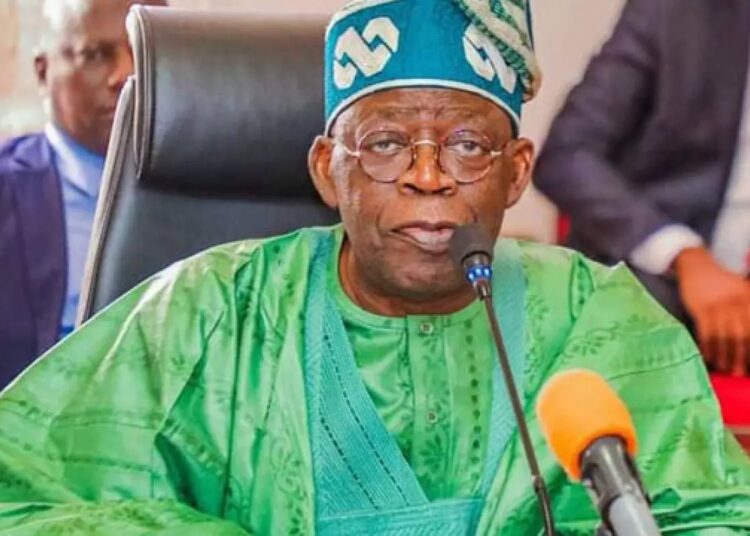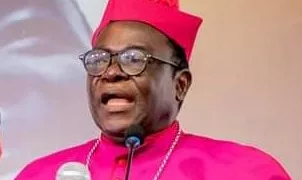As President Bola Ahmed Tinubu marks two years in office, the series of structural reforms and sector-specific initiatives aimed at stabilizing the macroeconomy, expanding access to finance, and accelerating inclusive development begins to take firm root.
Under President Tinubu, Nigeria’s economy achieved its fastest growth in 10 years in 2024. According to the World Bank, his slew of new fiscal and monetary policies now positions Nigeria strongly for a growth projection of 3.6% this year, 2025.
Key milestones include the establishment of regional development commissions, new education financing and credit access schemes, targeted investments in health and human capital, a renewed push into the blue economy and resurgent investor confidence opening up new funds in oil and gas, energy, mining and agriculture. The list goes on.
A robust infrastructure renewal drive—anchored by flagship road and transport corridor projects—is underway to enhance connectivity and unlock regional trade. Complemented by tax reforms, wage adjustments, and energy transition efforts, the administration’s agenda reflects a strategic pivot toward decentralisation, innovation, and fiscal sustainability.
Crucially, Nigeria is reasserting itself as a more investor-friendly destination, underpinned by a renewed commitment to the rule of law, institutional reforms, and a regulatory environment aimed at attracting domestic and foreign capital.
While challenges persist—particularly in inflation, security, and policy implementation—the foundations for long-term economic competitiveness and private-sector-led growth are being laid. One man’s clear vision and decisive temperament, laced with an aggressive approach to reforms, has opened up Nigeria’s possibilities and potential.
There are ongoing efforts showcasing achievements and impacts that have shaped the socio-economic landscape of the nation as the Tinubu Government reaches the midway mark.
Regional Development Frameworks
To address Nigeria’s geographic diversity and region-specific challenges, the administration has advanced the establishment and operationalization of regional development commissions. The South West, North East, North West, South East, North Central, and South-South Development Commissions now serve as vehicles for sub-national infrastructure delivery, post-conflict recovery, and local economic development—helping decentralize impact and institutionalize regional equity.
Expanding Access to Consumer Credit
The establishment of the Consumer Credit Corporation (CREDITCORP) marks a significant move to widen financial inclusion and support domestic consumption. CREDITCORP is designed to facilitate access to consumer credit for underserved populations, particularly civil servants, youth, informal sector workers, and lower-income households. By offering credit guarantees and working with financial institutions, the initiative aims to stimulate spending, improve living standards, and energize the economy through responsible borrowing and lending mechanisms. So far, over 200,000 have benefited.
Advancing Education Financing
To democratize access to higher education, the government launched the Nigerian Education Loan Fund (NELFUND), a dedicated vehicle for financing tertiary education. The scheme provides low-interest, long-tenure student loans to eligible Nigerians, reducing financial barriers to university and vocational training. This initiative aligns with the administration’s broader goals of human capital development, youth empowerment, and long-term productivity enhancement. One year after its launch NELFUND has benefited about Six Hundred Thousand Students.
Unlocking the Blue Economy
With over 850 kilometers of Atlantic coastline and expansive inland waterways, the administration has prioritized the development of the blue economy. New policies and sector plans aim to sustainably tap Nigeria’s marine and ocean resources while generating jobs across coastal states and boosting revenues from fisheries, tourism, port infrastructure, and marine transport.
Agricultural Transformation and Livestock Policy to bolster food security and rural incomes, a dedicated Ministry of Livestock Development was established, separating livestock policy from crop agriculture for more tailored interventions.
Investments in climate-resilient farming, modern ranching, and value-chain processing are aimed at boosting productivity, reducing import dependency, and addressing longstanding pastoralist-farmer tensions.
The Livestock Ministry established by President Tinubu is a product of good thinking and visionary leadership. The Ministry can significantly boost the livestock sector’s contribution to Nigeria’s GDP, moving from $32 billion to $74 billion by 2035. In terms of potential, the sector could generate over ₦33 trillion in revenue.
In a bid to stabilize the foreign exchange market and strengthen the Naira, the government has launched new oil-trade mechanisms, including the Naira-for-Crude initiative and Crude-for-Naira transactions. These instruments seek to restructure how Nigeria monetizes its oil exports while ensuring domestic currency liquidity and reducing dollar demand pressures.
Capital Market Deepening and Investment Incentives.
With Treasury bill interest rates exceeding 20%, the Central Bank has recalibrated short-term borrowing instruments to attract investors and contain inflation. In parallel, the creation of a new national credit guarantee institution—CREDITCORP—aims to ease access to finance for micro, small, and medium-sized enterprises (MSMEs), supporting job creation and GDP growth.
– Dare, CON, is the Special Adviser to Mr. President on Media and Public Communications
Flagship Infrastructure Projects. From the Lagos-Calabar Coastal Highway to the Sokoto-Badagry Economic Road, large-scale infrastructure projects are underway with the dual objectives of enhancing connectivity and unlocking regional trade corridors. These projects are expected to catalyze logistics modernization, cross-border commerce, and localized economic activity.
Welfare Enhancements and Youth Incentives
In a major boost to youth welfare, the administration has raised the National Youth Service Corps (NYSC) monthly stipend from ₦33,000 to ₦77,000—more than doubling support for graduates participating in national service. This marks a broader effort to retain skilled youth, reduce brain drain, and incentivize civic participation.
Tax Reforms and Digital Government
The introduction of the new tax reform bills now awaiting accent of the President is designed to simplify Nigeria’s complex tax architecture, reduce evasion, and improve compliance. Complementary reforms such as digital passport issuance and the installation of e-gates at international airports are improving public service delivery and reducing bureaucratic delays.
Wage Reform and Labor Protection
To protect household incomes in the face of inflation, the government has pledged to implement a recurring minimum wage review every three years. This institutional commitment aims to ensure wage growth keeps pace with economic conditions and worker productivity.
Transition to Clean Energy and Trade Logistics
As part of its energy transition plan, the government is scaling up the use of Compressed Natural Gas (CNG) as a cleaner and more affordable fuel alternative. Simultaneously, the Three Million Tons Transport and Trade (3MTTT) initiative targets an overhaul of freight logistics, boosting efficiency in the movement of goods across the country.
Strengthening Local Goverment Administration. The drive for local government autonomy remains central to the administration’s federalism agenda. By promoting fiscal and administrative independence for local councils, the aim is to enhance public service delivery and bring decision-making closer to the grassroots.
Diversification of the Economy: Away from Oil, President Tinubu as pursued aggressively the goal of decertifying the Nigerian economy. Nigeria’s Solid Minerals potentials is receiving full attention under Minister Dele Alake and contributing immensely to national revenue. Nigeria’s mining reforms now yielding six-fold increase in revenue, $800m foreign investment.
Conclusion
President Tinubu’s first two years in office have ushered in a bold and wide-ranging reform agenda aimed at stabilizing Nigeria’s macroeconomic fundamentals while positioning the country for long-term, inclusive growth. From aggressive infrastructure renewal and enhanced health and human capital investment to targeted sectoral interventions, the administration has demonstrated a commitment to modernizing Nigeria’s development model and unlocking its full economic potential.
With a focus on decentralization, innovation, and private-sector engagement, these reforms are actively reshaping the business landscape. Strategic initiatives—such as the launch of regional development commissions, credit access schemes, education financing, capital market reforms, and energy transition programs—signal a deliberate move toward a more competitive, investor-responsive economy. The government’s emphasis on regulatory clarity, institutional strengthening, and the rule of law is restoring confidence in Nigeria as a destination where capital is protected, contracts are respected, and the private sector is seen as a true partner in national development.
Nigeria’s expanding infrastructure backbone—from coastal highways to trade corridors—is being aligned with human capital initiatives in education, healthcare, and skills development, providing the critical foundation for sustainable productivity and innovation. These combined efforts not only foster domestic resilience but also create compelling entry points for foreign direct investment across sectors such as logistics, technology, energy, agribusiness, financial services, and manufacturing.
Nigeria is ready for business. The doors are open, and all legitimate investors—from across Africa and around the world—are welcome to engage in mutually beneficial partnerships. Backed by a population of over 200 million people, an increasingly digital economy, and a government committed to reforms, Nigeria offers one of the most promising frontiers for growth, scale, and return on investment.
While challenges remain, the trajectory is clear: this is a country undergoing a renaissance. Sustaining momentum will require disciplined execution, measurable results, and a continued focus on transparency and global best practices, which President Tinubu has all but done. With a strong foundation now in place, Nigeria is confidently stepping into a new era of opportunities and inviting the world to take a bet on it.





